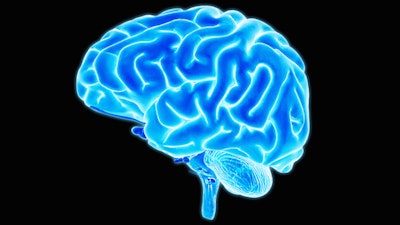
Ever since the first time humans stepped into a warm geothermal pool, we've known how good it feels. And beyond that wonderful sensation of aquatic immersion, we've also long suspected doing so is really good for us.
Thanks to an ever-growing body of research, we've learned how swimming can lower blood pressure, strengthen the respiratory system, aid the healing of those with physical aches and pains and more. And now, in an exciting new development, we know those benefits extend to the brain and overall nervous systems.
RELATED: Proof — What Science Knows About Aquatic Exercise
I was recently perusing a book that shines a bright light on the spectrum of these benefits called "Water Immersion Works." Published by the NSPF, it’s a terrific compendium of articles from many of the world’s leading researchers studying the effects of aquatic exercise, therapy and immersion. The book starts out with three pieces penned by Dr. Bruce Becker, one of the industry's most impassioned advocates of the benefits of aquatic activity, which examine these neurological benefits from several angles.
As he writes in "Promoting Nervous System Health:”
“Research has shown that immersion, especially warm water immersion, has a unique effect upon the autonomic nervous system, the part of the central nervous system that controls essential respiratory, cardiac and vascular systems. A relaxation effect is produced, bringing the autonomic system into optimal balance. This autonomic balance has been associated with a reduction in blood pressure, improvement in endocrine function and even improved mood and cognitive function.”
Becker expands on that theme with “Enhancing Brain Blood Flow and Arterial Health:" “In the past several years, it has been found that blood flow to the brain may be enhanced by simple aquatic immersion and aquatic exercise.”
The suite of Becker's articles concludes with “Biological Benefits for Post-Traumatic Stress.” Here, he describes work he’s done with veterans coping with PTSD. His conclusion: “Warm water therapy environments are beneficial for people with PTS, chronic anxiety disorders, depression and other situations in which the autonomic nervous system is adversely affected.”
In addition, Becker presented at the 2015 World Aquatic Health Conference where he discussed the impact of immersion for people with dementia. In it he highlights a case study of an aging gentleman who experienced what can only be described as remarkable improvements in his cognitive function as a result of his aquatic therapy, which mostly involved simply standing in water. Becker concludes the presentation by saying, “There’s no drug that can do this. Healthy brains are all wet.” See the full presentation below:
As an industry, we should all be trumpeting these messages as loudly as possible. Certainly, the pleasure aspect of the hot tub experience will always be the primary appeal, but when there is compelling evidence that it also improves brain function and can help treat some of our most challenging neurological conditions – that’s a truly rare opportunity.
It’s a story worth telling over and over again. The world needs to know that we have a health product that can do things that no drug can.




















![IPSSA’s incoming President Michael Denham [left], Rose Smoot, IPSSA Executive Director [center] and the outgoing President, Todd Starner [right].](https://img.aquamagazine.com/files/base/abmedia/all/image/2024/04/New_IncomingPres_MikeDenham_RoseSmoot_outgoing_president_ToddStarner_IMG_3920_copy.662682e0cbd3a.png?auto=format%2Ccompress&fit=crop&h=100&q=70&rect=0%2C345%2C3024%2C1701&w=100)

![IPSSA’s incoming President Michael Denham [left], Rose Smoot, IPSSA Executive Director [center] and the outgoing President, Todd Starner [right].](https://img.aquamagazine.com/files/base/abmedia/all/image/2024/04/New_IncomingPres_MikeDenham_RoseSmoot_outgoing_president_ToddStarner_IMG_3920_copy.662682e0cbd3a.png?auto=format%2Ccompress&fit=crop&h=167&q=70&rect=0%2C345%2C3024%2C1701&w=250)





![IPSSA’s incoming President Michael Denham [left], Rose Smoot, IPSSA Executive Director [center] and the outgoing President, Todd Starner [right].](https://img.aquamagazine.com/files/base/abmedia/all/image/2024/04/New_IncomingPres_MikeDenham_RoseSmoot_outgoing_president_ToddStarner_IMG_3920_copy.662682e0cbd3a.png?auto=format%2Ccompress&fit=crop&h=112&q=70&rect=0%2C345%2C3024%2C1701&w=112)







